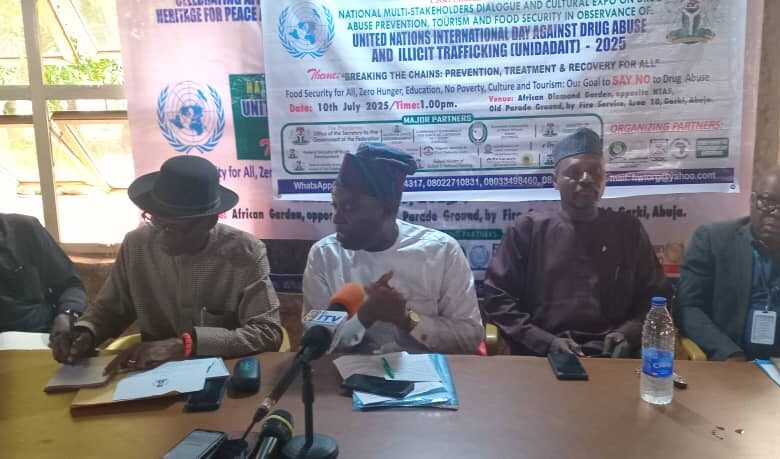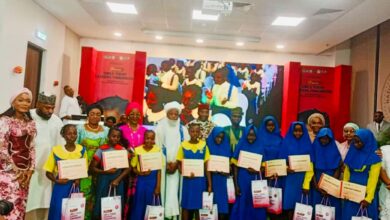UNODC urges collective action on Drug prevention, ties Drug Abuse to food security, organized crime

By: Goodluck E. Adubazi, Abuja.
The United Nations Office on Drugs and Crime (UNODC) has called for urgent, evidence-based investment in drug prevention efforts, warning that drug abuse and organized crime pose serious threats to public health, national security, and food security across Nigeria and the ECOWAS region.
Speaking during the 2025 World Drug Day commemoration, the UNODC emphasized the importance of prevention as a critical strategy in combating drug abuse. “The evidence is clear: we must invest in prevention. This is not just a health issue—it is a national security imperative,” said Dr. Femi Ajayi, National Project Officer for UNODC Nigeria.
Citing the slogan “Breaking the Cycle of Organized Crime,” Dr. Ajayi stressed that tackling drug-related crimes requires collective and coordinated action. “No single individual or group can solve this problem alone. We must come together to confront the intertwined challenges of drug abuse and food insecurity.”
Alternative Development: A Sustainable Approach
UNODC is championing “alternative development” strategies aimed at replacing the cultivation of illicit crops such as cannabis and opium with food crops, contributing both to food security and crime reduction. This approach is part of a broader campaign to address the root causes of drug production and usage.
“In 2018, UNODC conducted Nigeria’s first comprehensive drug use survey, revealing shocking statistics about drug prevalence and its link to criminality. This data has informed our push for alternative development as a key solution,” said Dr. Ajayi.
Education, Mental Health, and Community Engagement Key to Prevention
UNODC highlighted several ongoing initiatives, including school-based prevention programs, drug prevention, treatment, and care (DPTC), and community empowerment efforts. The agency is also working closely with families, local leaders, and private sector stakeholders to expand mental health services and build capacity for long-term resilience.
“Prevention must become the foundation of our national drug response. It must be measurable, sustained, and rooted in real collaboration,” Dr. Ajayi added. “The cost of inaction is too high—our youth, our security, and our future are at stake.”
ECOWAS Food and Cultural Festival: A Parallel Front in the Fight Against Crime and Hunger
Ahead of World Drug Day, stakeholders gathered at the ECOWAS Food and Cultural Festival, where leaders linked food security to national peace and stability. Ambassador Prince Felix Ihonre, Director-General of the ECOWAS Foods and Cultural Festival, stressed that food insecurity can escalate community tensions.
“When people are well-fed, anger and violence diminish. That’s why this festival is more than a cultural event—it’s a strategic initiative,” he said. “In the next five years, we want every family in the ECOWAS region to enjoy three meals a day.”
The festival also featured a strong endorsement from Nigeria’s Federal Ministry of Humanitarian Affairs and Poverty Reduction. Representing the Ministry, Ms. C. Eliohu Major outlined plans to establish rehabilitation centers and skill acquisition programs to help drug-affected individuals regain independence.
Nkwocha Peter, Permanent Secretary for Political and Economic Affairs in the Office of the Secretary to the Government of the Federation, joined other national stakeholders at the event, further reinforcing the government’s support for integrated solutions addressing both drug use and food security.
Dr. Ajayi concluded with a call for a united front across government, civil society, academia, and the private sector. “Let this World Drug Day be a turning point. Prevention must not be a footnote—it must be the foundation. Together, we can build a safer, healthier, and more hopeful Nigeria.”




